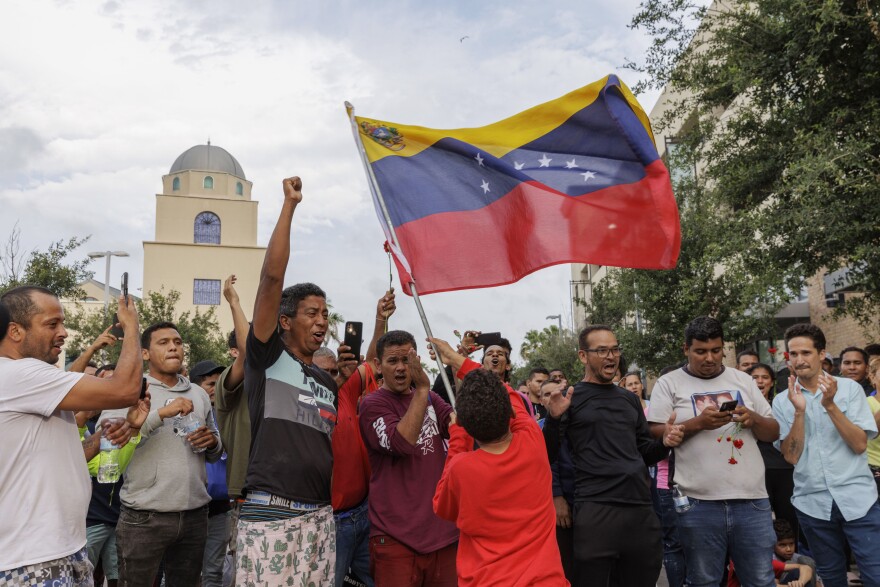The migrant parole program President Biden introduced this year remains popular in the countries it was intended to help — but the U.S. border crisis suggests Venezuelan migrants are suddenly having unexpected trouble taking advantage of it.
The parole allows a total of 30,000 migrants per month from Cuba, Haiti, Nicaragua and Venezuela to enter the U.S., remain for two years and secure a work permit — all meant to deter them from making the dangerous trek to the overwhelmed southern border. Those migrant applicants just need someone here in the U.S. to sponsor them.
Haitian migrants have had trouble finding sponsors because social media misinformation in the Haitian community here has made relatives and other eligible candidates hesitant to step forward.
Nicaraguan migrants have had the same problem, largely because the Nicaraguan community — and therefore the pool of ready and willing sponsors — is relatively small.
But now it appears Venezuelan migrants — who actually got to start applying for the parole in a pilot program last fall — are, surprisingly, experiencing the same difficulty, despite what U.S. officials expected to be an ample store of sponsors in Venezuelan expat communities like South Florida's.
READ MORE: Can Biden's new carrot-and-stick immigration policies ease the U.S. border crisis?
Part of the problem, say Venezuelan community leaders here, is that the demand for the parole appears bigger among Venezuelans than in the other migrant groups.
“We need more sponsors to stand up and help to change the life of a Venezuelan family, because so far it’s not enough for the quantity of people that need the help," Maria Antonietta Diaz, president and founder of the nonprofit Venezuelan-American Alliance in Miramar, told WLRN.
"We have more than 40,000 [Venezuelan migrants] still asking for [parole] sponsorship, according to surveys we've been conducting" with help from the refugee assistance nonprofit Welcome.US, she explained.
Diaz — who is sponsoring 20 Venezuelan migrants — says that gap is evident because so many desperate Venezuelans have recently begun showing up again at the U.S. southern border after making odysseys through treacherous tracts like the Darien Jungle on the Colombia-Panama border. That's especially true this month as the Title 42 pandemic health rule restricting asylum applications has expired.
Those Venezuelans include most of the eight migrants killed last week in Brownsville, Texas, when an SUV ran them over at a bus stop.
“It’s very sad that we see more tragedies like that," Diaz said. "It's a reminder that most Venezuelan-Americans and other Americans who can sponsor Venezuelans can help them to not risk their life crossing all this nightmare.”
Venezuelans continue to leave their authoritarian socialist country en masse because it's suffering the worst humanitarian crisis in modern South American history.






